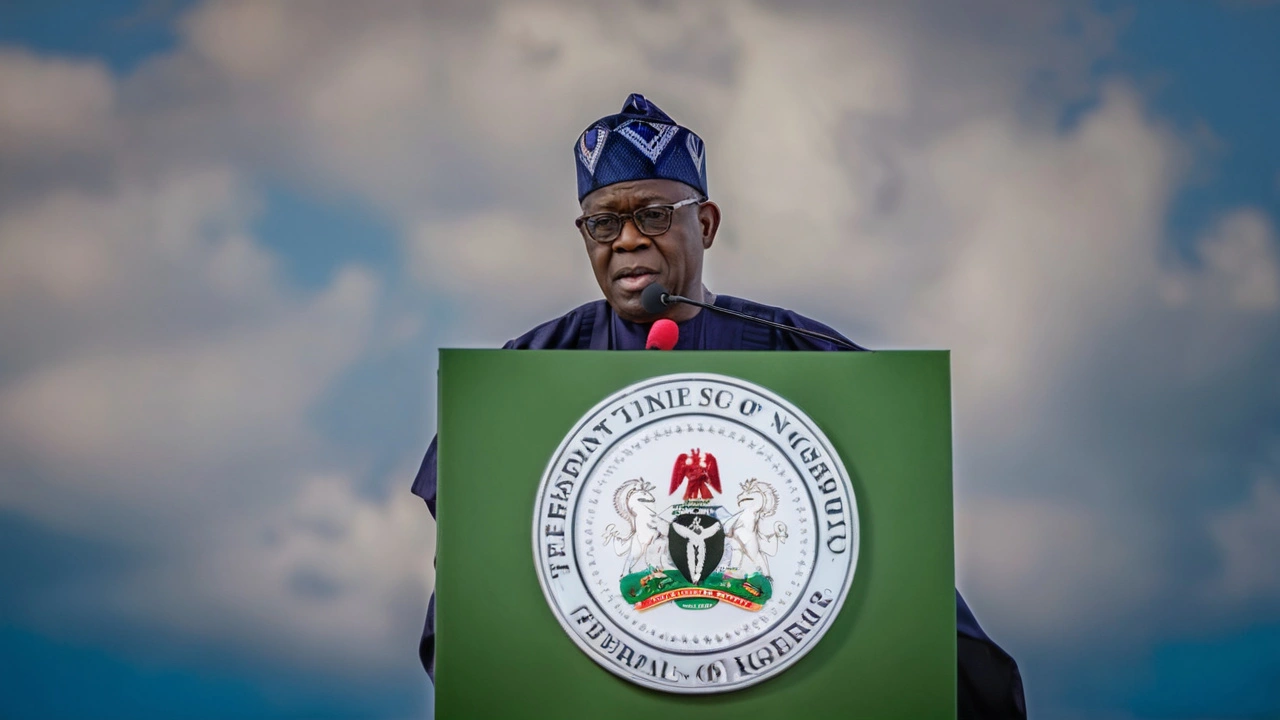Tinubu's Bold Move to Elevate Worker Compensation
In a pivotal moment for the Nigerian workforce, President Bola Tinubu has signed into law the National Minimum Wage (Amendment) Bill 2024. This new legislation is poised to reshape the economic landscape for millions of Nigerian workers by setting a national minimum wage of ₦70,000. This increase applies uniformly across both public and private sectors, addressing a long-standing demand from labor unions and significantly enhancing the financial security of many families.
The signing occurred midway through the Federal Executive Council (FEC) meeting on Monday, a strategic decision aimed at emphasizing the importance of the legislation. Senate President Godswill Akpabio, accompanied by key figures from the National Assembly, was present at the signing ceremony, underscoring the collaborative effort required to bring this landmark bill to fruition.
A Collaborative Effort
The road to this significant milestone has been paved with months of negotiations and discussions between the federal government and organized labor unions. These deliberations were essential in reaching an agreement that balances the interests of employers with the urgent needs of workers. The previous minimum wage of ₦30,000, set in 2019, has lagged behind the rising cost of living, leading to growing discontent among the working population.
President Tinubu's administration recognized the challenges faced by Nigerian workers and made a concerted effort to address these issues through the new bill. Dr. Yemi Folade-Esan, the Head of Service of the Federation, highlighted that the new law would provide reassurance to workers that their welfare is a priority for the current administration. This sentiment was echoed by labor leaders, who expressed optimism that the increased wage would alleviate some of the financial burdens shouldered by Nigerian families.
A Significant Increase
The leap from ₦30,000 to ₦70,000 represents more than double the previous minimum wage, marking a significant change in worker compensation. This increase is expected to have far-reaching impacts on the Nigerian economy, driving consumer spending and potentially stimulating economic growth. Additionally, the law mandates a review every three years, ensuring that the minimum wage keeps pace with inflation and cost of living adjustments.
The new minimum wage also serves as a benchmark for other reforms aimed at improving the quality of life for Nigerian workers. It is anticipated that this move will lead to better working conditions, higher productivity, and a more robust economy. The federal government and organized labor can now focus their efforts on other critical areas, including healthcare, education, and social services, to further enhance the well-being of Nigerian citizens.
Celebration and Gratitude
During the signing ceremony, President Tinubu expressed his gratitude to the members of the National Assembly for their diligent work in expediting the passage of the bill. He acknowledged the efforts of Senate President Godswill Akpabio and other leaders who played instrumental roles in facilitating the legislative process. The president emphasized that the increase in the minimum wage is a testament to the government's commitment to improving the lives of its citizens.
The ceremony was a moment of celebration for many, particularly for workers who have long advocated for better wages. The presence of top government officials and labor leaders at the event symbolized a unified front in the pursuit of economic justice and social equity. President Tinubu's administration views this achievement as a critical step toward building a more inclusive and prosperous Nigeria.
Looking Ahead
The enactment of the new minimum wage law is not just a policy change; it is a catalyst for broader socio-economic progress. By ensuring that workers receive fair and adequate compensation, the government is laying the groundwork for a more stable and thriving economy. The regular review clause within the bill guarantees that wage adjustments will be made in a timely manner, preventing future disparities between earnings and living costs.
As Nigeria moves forward, the focus will shift to implementing the new wage structure effectively. Both federal and state governments will need to ensure compliance across all sectors, with mechanisms in place to monitor and address any issues that arise. The successful implementation of this law will require a coordinated effort between government agencies, employers, and labor unions.
In conclusion, the signing of the National Minimum Wage (Amendment) Bill 2024 is a significant victory for Nigerian workers and a bold step by President Tinubu's administration. It represents a commitment to fairness, equity, and economic stability, setting a new standard for worker compensation in the country. The increased minimum wage is expected to boost morale, enhance productivity, and contribute to a more prosperous Nigeria for all.
